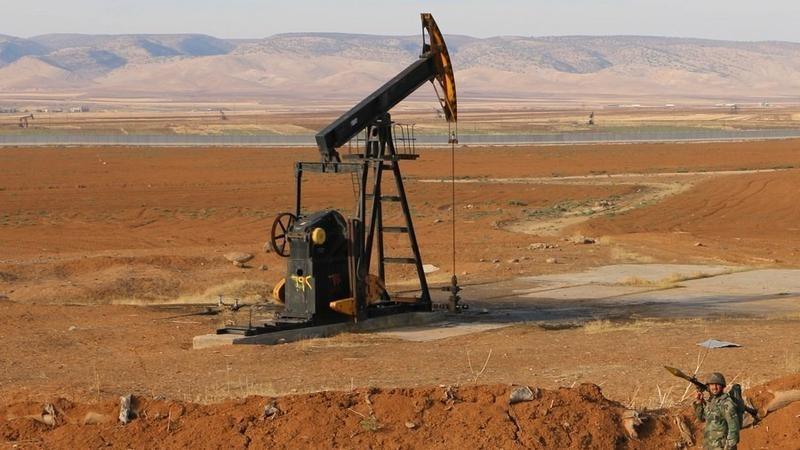 A Syrian soldier is seen in an oil field in the countryside of Qamishli, northeastern Hasakah province, Syria, on Nov 5, 2019. (PHOTO / XINHUA)
A Syrian soldier is seen in an oil field in the countryside of Qamishli, northeastern Hasakah province, Syria, on Nov 5, 2019. (PHOTO / XINHUA)
WASHINGTON - The World Bank said on Monday it expected global oil prices to average $90 a barrel in the fourth quarter and fall to an average of $81 in 2023 as slowing growth eases demand, but warned that an escalation of the latest Middle East conflict could spike prices significantly higher.
The World Bank's latest Commodity Markets Outlook report noted that oil prices have risen only about 6 percent since the start of the Israel-Hamas war, while prices of agricultural commodities, most metals and other commodities "have barely budged."
The World Bank's "large disruption" scenario approximates the impact of the 1973 Arab oil embargo, shrinking the global oil supply by 6 million to 8 million bpd. This would initially drive up prices to $140 to $157 a barrel
The report outlines three risk scenarios based on historical episodes involving regional conflicts since the 1970s, with increasing severity and consequences.
ALSO READ: Israel expands ground operation as death toll in Gaza hits 8,005
A "small disruption" scenario equivalent to the reduction in oil output seen during the Libyan civil war in 2011 of about 500,000 to 2 million barrels per day (bpd) would drive oil prices up to a range of $93 to $102 a barrel in the fourth quarter, the bank said.
A "medium disruption" scenario -- roughly equivalent to the Iraq war in 2003 -- would cut global oil supplies by 3 million to 5 million bpd, pushing prices to between $109 and $121 per barrel.
The World Bank's "large disruption" scenario approximates the impact of the 1973 Arab oil embargo, shrinking the global oil supply by 6 million to 8 million bpd. This would initially drive up prices to $140 to $157 a barrel, a jump of up to 75 percent.
READ MORE: Israel launches retaliatory missile strike against Syria
"Higher oil prices, if sustained, inevitably mean higher food prices," said Ayhan Kose, the World Bank’s Deputy Chief Economist. "If a severe oil-price shock materializes, it would push up food price inflation that has already been elevated in many developing countries."


